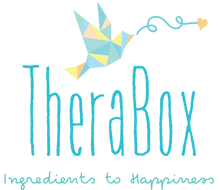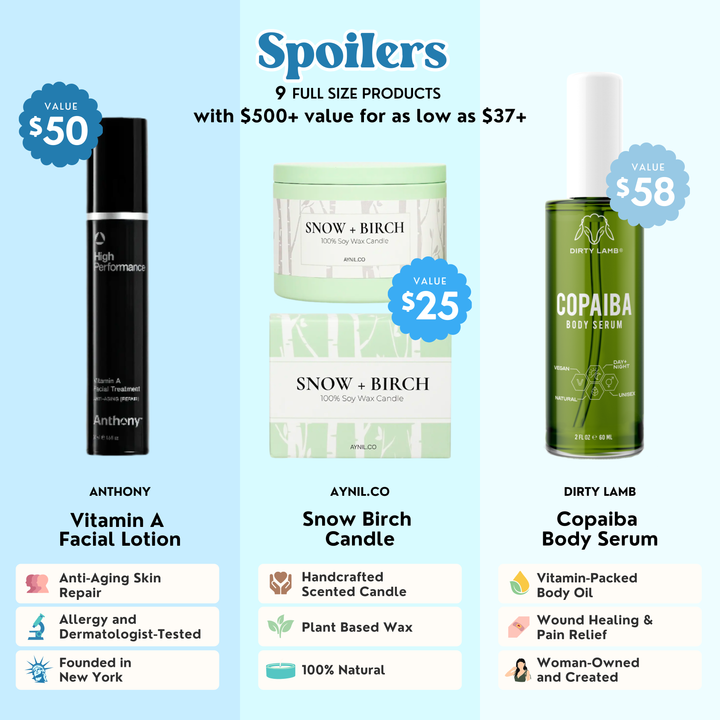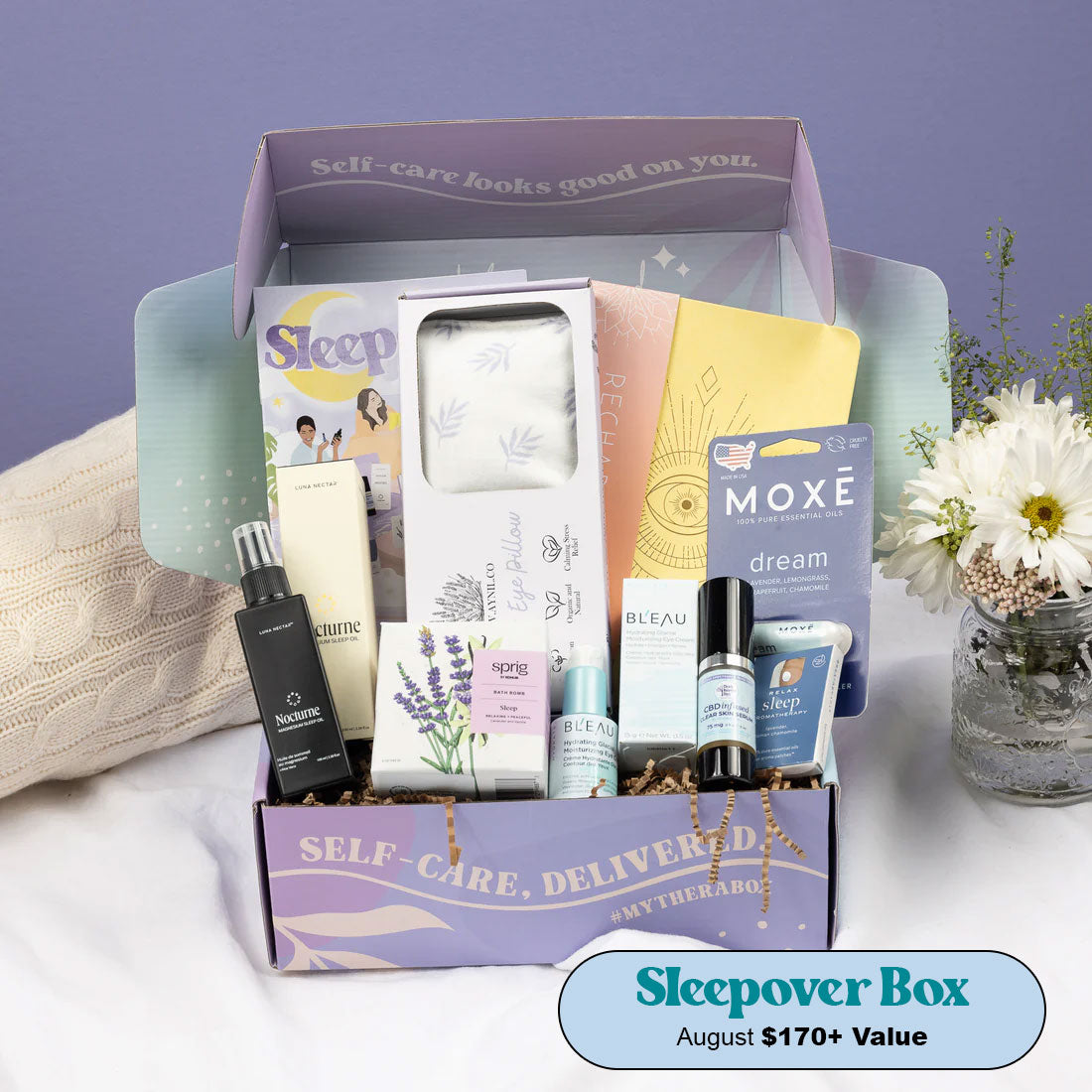
Science-Tried Tips & Tricks to Improve Sleep & Relaxation
Podcasts, social media posts, and bloggers are always spitting out tips on how to be happier, relaxed, and better rested. But no matter how much we hear them, rest and relaxation may go unachieved.
We’ve been exploring this topic for quite some time, and we’ve found that it can be simplified while keeping things legit and scientific. Also, we’ve discovered that it HAS to be kept simple and legit, otherwise it will end up on the backburner (Note: this is bad when you leave your burners going because you’ll eventually get burned).
So, to keep things simple, we’ll focus on two biological aspects of rest and relaxation and throw out some scienc-y solutions that can address them. Now let’s dive in!
Put That SNS On Standby!
We’ll say our nerves are frazzled when we’re stressed out, but there’s a literal truth to this common statement. Our nervous system (aka system of nerves) plays a direct role in stress through the autonomic nervous system and it’s two parts: the fight-or-flight sympathetic nervous system (SNS) and the rest-and-digest parasympathetic nervous system (PNS).
When we get stressed out, our mind senses a threat and triggers the stress response. It doesn’t matter if we’re thinking about a project deadline or we’re looking at a hungry mountain lion, our mind perceives these stress-inducing feelings to mean that there is a threat. So, the SNS is activated and the body begins pumping out adrenaline to get the muscles and brain prepared to fight or run away. If we remain stressed after this initial adrenaline release, our body will emit cortisol to help keep us alert. Very helpful when you’re running away from a mountain lion. Not so helpful when you need to relax to get to work or to fall asleep.
Better rest comes in shifting from the adrenaline and cortisol craziness of an active SNS to the calm and peaceful state of an activated PNS. In other words, we need to stop stressing out so that we can relax and rest.
-
Sip Herbal Relaxants: There are a few categories of herbs which can be used to promote relaxation and better sleep. Nervine relaxants are able to calm the nervous system to reduce stress, plus they can ease tension in our bodies. The most effective include skullcap, kava kava, wild lettuce, and passionflower. You can drink them as tea or take them as a tincture, but do so as recommended. They can have sedative and mildly-euphoric effects, so you want to make sure you don’t overdo it on the dosage. For a more mild but equally powerful relaxing alternative, get a bottle of quality essential oils like lavender, chamomile, and hops. Apply to the body via carrier oil after your nightly shower, drop it on your pillow, or put it in a diffuser to catch a whiff of restful scents.
-
Conscious Breathing: If we had a dollar for every time someone told us, “Just breathe!” we’d be a good hundred dollars richer. Annoying as this advice may be, it’s spot on. The claimed benefits of breathing of ancient schools and practices are being validated by modern science again and again. Scientists and sleep experts know that conscious breathing can reduce blood pressure and elevate mood. By focusing on our breathing we not only get more oxygen into our bodies and supercharge circulation. Turning our attention to our breath naturally relaxes our stress response, allowing us to shift from the fight-or-flight sympathetic nervous system to the rest-and-digest parasympathetic nervous system. It’s easy to scoff at meditation with how trendy and overhyped it’s become, but the benefits or mindfulness and breath are real.
- Stop Stressing And Write Down Your C.R.A.P: Night time needs to be set as a special time for us to sit back, relax, reflect, and enjoy life. However, the mind isn’t always on board with this. That’s where neuroscientist Dr. Mark Waldman and his C.R.A.P. Board (Conflicts, Resistances, Anxieties, and Procrastination) can help. Jot down everything you need to get off your chest for each worry: what you’re worried about, how you feel about it, why it’s so stressful, everything. Simply making this list and setting it on the table for review the next morning may be enough. However, if you’re still feeling anxiety, take it a step further by writing out the absolute worst that could happen (it’s never really as bad as our mind claims it is), then follow-up by listing a some quick ideas on actions you can take to help address that. Getting this stuff down on paper will allow your mind to shut up because it knows that all your CRAP is on a list and waiting to be taken care of.
Set Your Circadian Rhythms
There’s a good chance you’ve heard of circadian rhythms, but there are some important factoids that get missed. Circadian rhythms refer to a natural cycle our bodies follow involving body temperature, metabolism, behavior, and hormone production (ie. sleep-inducing melatonin). Daylight plays a major role in our circadian rhythms and sleep patterns.
Here’s the deal. Inside our brain, there’s a nerve bundle known as the Suprachiasmiatic Nucleus (SCN). This group of nerves happens to be located right next to the area of the brain where our opticals nerves cross. Our optical nerves pick up on light and darkness, so our SCN naturally knows daytime from nighttime and acts as the master clock. When the SCN perceives darkness, it kicks up production of the sleep hormone melatonin to initiate rest and relaxation. As the night goes on and the morning sun begins to shine in our bedroom, the SCN cuts down on melatonin. So, when it comes to getting our bodies to relax and rest, we need to get our circadian rhythms on track.
- Routine: Remember how as a kid in school, you’d wake up at the same time every morning? That’s because routine helps to regulate processes within our body so we develop our own inner clock. Our bodies loves cycles and routines. Now, as adults we have our routines, but the average person’s schedule involves going to bed too late, sleeping too little, taking little to no time to unwind, etc. We need a solid routine where we give our minds and bodies time to relax and we allow for ourselves to get enough sleep to feel restored and refreshed.
- Lighting: Electronics and standard light bulbs produce light within the blue wavelength spectrum. Just like our sun. Blue light throws off our natural circadian rhythms, and it’s being studied for links to health problems too. It’s safe to say that this is one time where we should “go natural.” Stick with dim lighting (or invest in red light bulbs if you can), blue-blocking glasses, and apps that filter light for night time. While you’re avoiding light at night, make sure that you’re allowing yourself plenty of wakeful light in the morning. If you have to wake up early or you have blackout curtains, considering investing in wake-up light therapy clocks.
That’s it for today’s tips on rest and relaxation. Have you tried out any of the tips shared above? Or maybe you have one to add to the list? Be sure to share with us on social media!
This blog post was created by our contributing author of TheraBlog: Ash Stevens. Check out her blog here


















Leave a comment